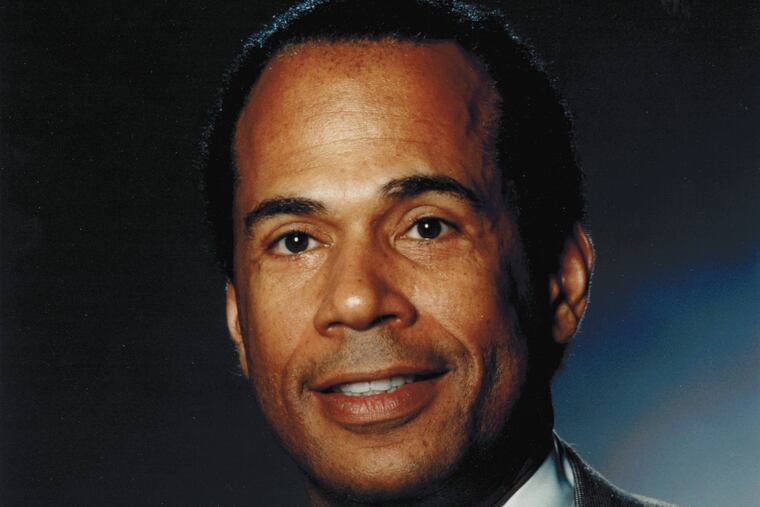Eugene Lothery, trailblazing African American TV and radio executive, dies at 78
Mr. Lothery started out in the CBS mailroom and took care to make friends while delivering mail. With lots of stops along the way, he climbed the CBS career ladder, one of few African Americans to do so at that time.

Eugene Lothery, 78, of Gladwyne, a trailblazing African American executive who became vice president and general manager of WCAU-TV, died Sunday, May 31, of complications from partial paralysis. He had needed to use a wheelchair for seven years.
He died at a hospice in Atlanta, not far from his retirement home in Smyrna, Ga.
Mr. Lothery’s climb to prominence came at a time when few African Americans reached the upper echelon of the broadcast industry. After graduating from Central Michigan University, he landed a job in the CBS mail room in Los Angeles.
“Not only was he meticulous in the performance of his job and appearance,” his family said, “he was also smart enough to recognize and memorize the names of everyone holding a top position and engage them in intelligent and personable banter with every day’s mail delivery.”
Mr. Lothery quickly drew the attention of executives in the building as well as their visitors. After a chance meeting with Martin Ransohoff, cofounder of Filmways Television, he was hired as editorial manager for the TV production firm. He coordinated screenings for networks and advertising agencies.
He worked on the sets of The Beverly Hillbillies, Petticoat Junction, and Green Acres. He appeared on The Dating Game as a contestant and was named one of Ebony Magazine’s most eligible bachelors in 1967.
In 1968, he married Joan Tademy, and they began a life of frequent moves for his work. They divorced in 1995.
He returned to CBS in Los Angeles as an account executive for KCBS-TV, becoming the first African American TV ad salesman, his family said. He rose to area sales manager and vice president at WBBM-TV in Chicago, and in 1971 moved to WCBS-TV in New York.
In 1974, Mr. Lothery was named vice president and general manager of CBS’s WEEI-AM in Boston.
Eight years later, he returned to New York to become vice president and head of radio stations owned and operated by CBS. Mr. Lothery was promoted to vice president and station manager, the number-two spot at WCBS-TV.
“He always wanted to be a station general manager,” his former wife said, and with a move to Philadelphia in 1990, that wish came true.
As vice president and general manager of Channel 10, he believed he could make a difference. During his tenure, WCAU, which had trailed among the three traditional network affiliates, moved to second place and at one point led the ratings battle during two Nielsen rating periods.
In 1995, when the station changed ownership from CBS to NBC, Mr. Lothery returned to CBS corporate headquarters in New York as a vice president of operations. He retired in the late 1990s.
Mr. Lothery was a civic volunteer. In 1993, he served as a board member of the pageant foundation for Mr. and Miss African U.S.A.
An avid tennis player, he teamed with Blue Cross CEO G. Fred DiBona and the Philadelphia Urban League to acquaint city children with local business leaders. The 1991 program aimed to create future leaders in the city.
“He was always was trying to bring people along and help others out,” his former wife said.
Mr. Lothery pushed for equal rights for minorities as he navigated the corporate world. He did that “in spite of racial biases and roadblocks he and others of his generation endured,” his family said.
Born and raised in Rochester, Mich., he loved the Midwest except for the cold weather.
He was devoted to his extended family and supported them if needed. “He hoped to always impart lessons of hard work and respect for all,” his family said.
Besides his ex-wife, he is survived by son Brennan, daughter Karlyn Kieffer, and nieces and nephews.
Plans were pending for a virtual memorial service this month. He asked to be buried in his hometown.